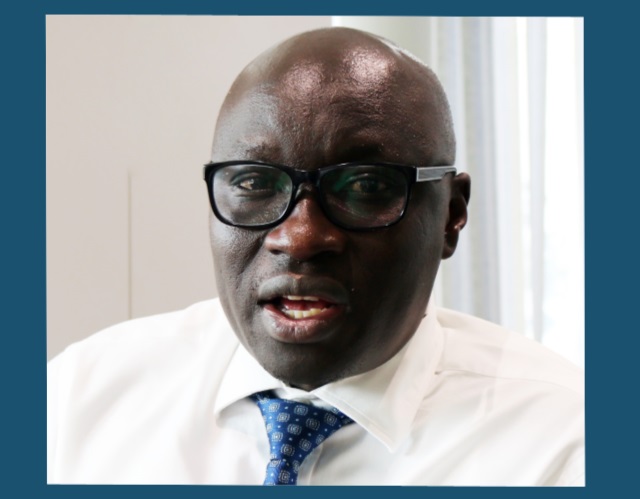
Godfrey Mundua is dfcu bank’s head of corporate banking that handles one big segment in the institution called commodity financing. He spoke to The Independent’s Julius Businge about the opportunities this line of credit is offering.
What is commodity structured finance all about?
Structured commodity finance is a specialised way of funding to clients where the bank has a title and control of goods through a title document such as a warehouse receipt, an original bill of lading or equivalent document. Structured commodity finance can cover funding of all commodities like soft commodities, metals and energy. Soft commodities include sugar, cotton, coffee, grains, and pulses. Financing of such commodities is based on the intrinsic value of the commodity and it is self-securing in nature allowing the client to access more working capital than they would get in conventional lending. Through structured finance, traders or producers can stock commodities during bumper harvest when prices are low and only sell when market prices are better.
You recently held a dialogue with commodity traders at Serena Hotel. What opportunities did this meeting present?
It was a meeting to introduce to traders and farmers to opportunities for this segment of financing. The focus was on how we can help traders to create capital. We were happy to see many of our clients coming for the meeting. We hope to have more of those meetings in the future.
Commodity Financing is not one of your traditional services, and for many years many commercial institutions have avoided financing agriculture, why now?
Lending to agriculture sector is generally perceived to be a high risk compared to other sectors like manufacturing, services, trade and commerce, construction where cash flows are more certain. Agricultural business in Uganda is rain fed, managed by smallholder farmers and the sector is exposed to the risks of weather vagaries, price volatility, forex fluctuations which increase overall risk. Financial institutions therefore need deep understanding of the sector and must have ability to have structures where the risk can be mitigated or shared with other parties.
What specific impact has this segment created?
We have financed several players in different value chains including grains, coffee, oilseeds, cotton, cocoa and others. Up to 20% of our lending book is dedicated to agriculture and credit to the sector forms significant portion of our lending. We will continue to finance interested individuals and supporting them in whichever way. We want to have a success story where the bank is growing with its customers.
Of late, banks have become more selective when lending. They are dealing with big boys…what is the criterion for choosing or selecting the beneficiaries for this line of credit?
All clients are eligible for as long as they have a bankable proposition. For commodity traders, if you have a storage facility whether owned or rented and you have a trading track record, you are eligible. It is also important to note that scale is important to ensure your overhead costs are met.
How much money have you so far disbursed and that set aside for this type of financing?
Our balance sheet has been growing over the years and the quantum of funding to this sector has equally grown. Today we have over Shs250billion invested in agriculture.
Uganda is an agrarian economy but majority of commodity producers largely depend on nature/rain to produce. Who bears the loss when crops fail?
Weather vagaries are one of the key risks that impact yield for rain fed agricultural production. Many commercial farmers need loans to finance inputs like seeds, fertilizers, herbicides before planting but the challenge many lenders face is the loss of yield due to bad weather. Today, this risk can be mitigated by banks taking insurance cover that mitigates the risk. The cost of insurance is paid by the farmer but it is subsidised by the government.
What leadership traits do you use as the head of corporate banking?
I value teamwork and do not like to leave anyone behind. I do not lead from the front. These keep us going and winning as a team.
What should your clients expect from you going forward?
We are here to stay and serve our client needs. We believe that agriculture is an important sector for Uganda’s economy. We will continue to engage our clients, attending to their financial needs that we think is critical for growing not only our customers but the economy in general.
****
 The Independent Uganda: You get the Truth we Pay the Price
The Independent Uganda: You get the Truth we Pay the Price





